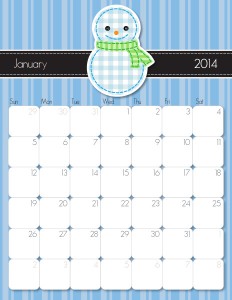2013 Annual Review
Last year I started doing an annual review and yearly plan at the end of the year.
2013 was a pretty good year for me. Accomplished a lot, failed to accomplish even more, have a big list of things to get on with next year.
I’m going to try and keep up a bunch of habits, as well as aim at bigger goals. Here are my habits for 2014:
- do quarterly, fortnightly, and daily planning
I’ve been experimenting with this for the last couple of months, and it’s pretty powerful stuff. Especially like the medium-term planning. - meditate every day
I want to start meditating. Everyone says it is incredibly beneficial, so I am going to try to do 5 minutes every morning. - strength training
I am back on the Stronglifts 5×5 program, but this time I’m only going to the gym twice a week instead of three times. It’s working much better for me: better recovery and less time pressure. - improve Japanese language skills
I am going to continue doing anki every day and try to read at least one book a month in Japanese. This has always evaded me so far so I hope 2014 will be the year when I can actually make this into a habit. - intermittent fasting
I did this for most of 2013, and it suits me very well so I plan to continue. Basically you don’t eat until the afternoon, so you effectively fast for 16 hours a day and only eat during an 8-hour window. More info here.
The focus on habits is due to realizing that habits are the base of all our behaviour: good habits, good lifestyle. The list above should be achievable, as I am already good at a couple of them. Trying to create too many new habits means you will probably fail.
The other thing I really need to work on is not wasting time online, but seeing how it is basically my kryptonite, I am not too hopeful 🙂
How about you? Any resolutions or goals for next year?
extensive reading Language learning presentations self-study university
by sendaiben
6 comments
Video: Extensive Reading Workshop for University Staff (Japanese)
ER for Staff -a training workshop at Tohoku University
This 90-minute workshop on using extensive reading for self-study in English was conducted in Japanese at the Tohoku University Library on December 26th, 2013. I really don’t like listening to myself speak Japanese (it sounds very different to what I hear in my head) but I guess this is something I will get used to eventually (after all, I went through the same process watching my presentations in English and am now fairly comfortable with that).
Merry Christmas to all, and to all a good holiday
I’m about to embark on my annual cooking adventure.
(it won’t look like that)
As well as cooking, I’ll be doing a special extensive reading workshop for Tohoku University staff on Thursday, so hopefully we’ll have a video of that up by the end of the week.
I’ll also be doing my annual review at some point over the weekend. Very much recommend this exercise if you don’t do it already.
Enjoy the holidays and keep checking back here: I’m planning to keep to my Tuesday-Friday posting schedule and you wouldn’t want to miss any of my pearls of wisdom 😉
ALTs expectations high school junior high school SHS teaching
by sendaiben
leave a comment
Updating the ALT Playbook
A list of dos and don’ts for ALTs and other language teachers
I read Baye McNeill’s excellent book Loco in Yokohama a few weeks ago, and thoroughly enjoyed it. It’s a great read and it took me right back to my days teaching in junior high school as a first- and second-year ALT on the JET Programme.
It also reminded me of what I used to do in the classroom back then.
Like many ALTs, I came to Japan with little teaching experience (I had taught a couple of classes and done some tutoring in China). I received minimal training and very little supervision from my colleagues and supervisors, both in the school and in the local board of education. I got a lot of advice from other ALTs and just muddled through.
Thinking back now I can think of many ways I could have been more effective and served my students better. Don’t get me wrong, I think I did my best with the information I had and made a positive contribution, but I could have done so much more.
Here is my advice to ALTs and language teachers in Japanese junior and senior high schools:
- DO think about your goals for the year, the month, and the class. Lesson planning should end with the language target and textbook page, not start there. Try to link lessons together so that students can review and preview past and future activities and language.
- DON’T worry about things being fun. Video games are fun. Hanging out with your friends is fun. Language classes are seldom fun. Instead of fun, think about challenging, achievable, and meaningful. Success is the most motivating experience for students, and many of them are turned off by classes in which they never experience success. Give them that, and they will enjoy the class much more than if they had done some ‘fun’ activities. I haven’t seen many math classes here in Japan revolving around games, so why should language classes?
- DO think about time on task. Many classroom activities involve just one or two students, while all the others just watch or get bored. Games like pass the parcel, criss cross, and relay games were staples in my classroom, but I now believe that having students ask and answer simple questions in pairs for a couple of minutes would have been a much more useful activity. I bet many of the students would have enjoyed it more too.
- DON’T talk too much. I believe students need to use the language to acquire it, which in any class bigger than five students or so means doing pair or small group activities. Make sure there is a healthy balance of teacher talking time and student talking time in your class.
- DO set homework and encourage students to practice outside of class. Self-study using printed, audio, or online materials is the only realistic way for students to get good at English. Model appropriate activities in class and follow up to see what students are doing. Take an interest in the students who are practicing and keep nagging the ones that don’t.
- DON’T give up. I haven’t met a single student who doesn’t secretly want to be good at English. Keep giving them the chance to have a bit of success, to find something interesting to do in or with English, and you might be able to change their future relationship with the language.
What do you think of the list? Anything to add or disagree with?
Another MEXT announcement about English
Another week, another MEXT announcement about English education.
As usual, I agree with MEXT. Junior high school English classes would probably be more effective if they were done entirely in English. I remember learning French that way in the UK and it was mostly fine for me and my classmates. The main difference with Japan is that our teachers were fully trained, had opportunities to visit France to keep up their language skills, were able to use suitable materials, and enjoyed the support of colleagues, administrators, and parents. The exams in the UK also focused on communicative tasks.
I wish MEXT the best of luck with the implementation of this ambitious project, but I suspect we won’t be seeing these policies implemented in local schools any time soon. Personally, I am still trying to get our local high schools to start extensive reading programs… maybe 2014 will be the year?



